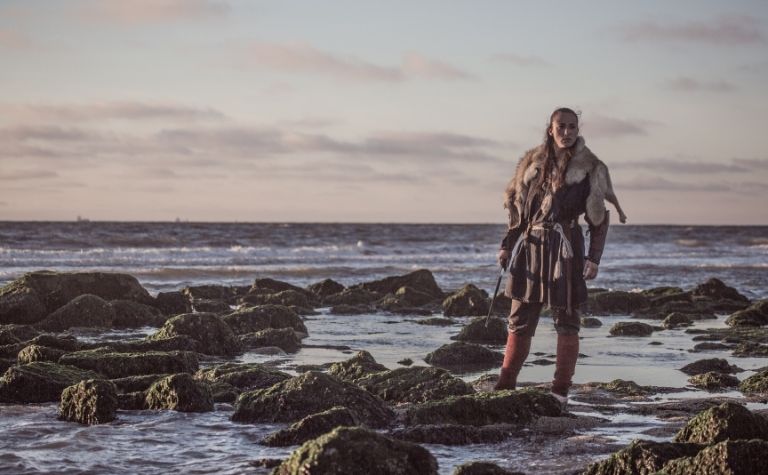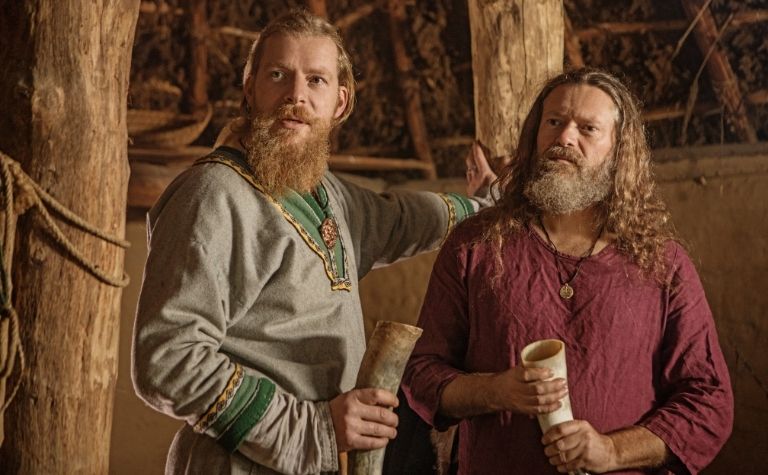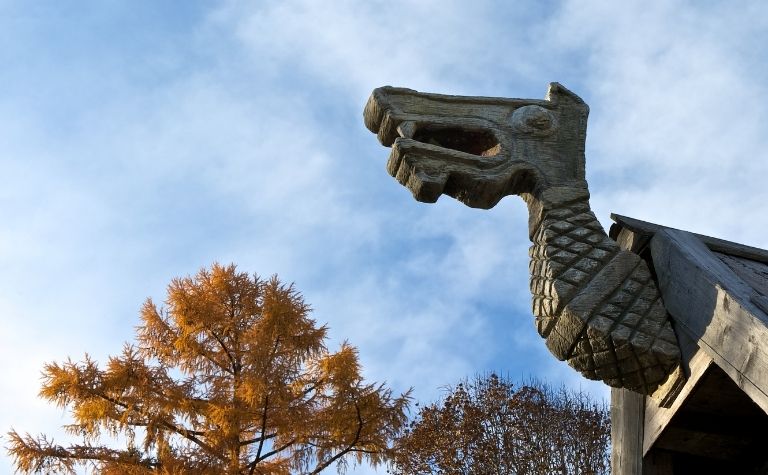The Vikings, as expert travelers and navigators, explored much of Europe and found enough wealth to sustain themselves along the way.
Their raids and settlements covered most of the North Sea’s coast, but some of their settlements, such as those in the Frankish Kingdom of Frisia, did not last long.
There were Dutch Vikings. Danish Vikings ruled most of the northern coast of Frisia, part of the area now known as the Netherlands, for approximately 37 years.
On their raids, a group of Danish Vikings made settlements in Frisia, a Frankish kingdom that would later become the northernmost part of the Netherlands.
These Vikings, led by the Haraldsson family, exploited the Frankish Empire until they were slaughtered and ousted by the Frisian natives near the end of the 9th century.
Also see Vikings and Anglo-Saxons Compared to learn more.

Did the Vikings Raid the Netherlands?
In 810 A.D., just at the beginning of the Viking Age, the Vikings began raiding the coast of the North Sea, plundering monasteries and smaller villages. [1]
There, they came across the Frankish country of Frisia, which would later comprise a significant part of the Netherlands.
The Vikings raided the Netherlands during the 9th century A.D., although the region was then known as Frisia.
The region fell under Viking threats between 810 and 882 A.D. and suffered significant losses from raiding.
However, by the 11th century, Vikings had lost interest in the area.
Frisia came under Frankish rule in 734 A.D., and it quickly became a significant trading hub for the Frankish empire.
However, its importance made it a target for Viking raiders seeking wealth.
Threats and raiding increased as Frisia fell under inheritance struggles and civil wars, leaving the land practically defenseless by the 810s when Danish Vikings began to launch raids on parts of the Frisian coastline.
These raiders razed several critical cities in Frisia, kidnapped locals, destroyed a central Frankish Mint, and took many monasteries, subduing the kingdom of Frisia into an economically and politically vulnerable position.
Viking raids and invasions continued into 1024 A.D., leaving the area as it developed and declared independence.
Also see Vikings and German Barbarians Compared to learn more.

Did the Vikings Establish Settlements in the Netherlands?
The Vikings established settlements in the Netherlands, known as Frisia, in the middle of the 9th century A.D..
Frisia was part of the Frankish territories, but following the Danish Viking raids of the 850s, parts of the land came under Rorik Haraldsson of Dorestad.
Scholars still debate how Danish Vikings came to control parts of the Netherlands, but all Historical accounts point to the efforts of Rorick Hartaldsson of Dorestad, a Danish Viking.
Rorik Haraldsson’s family, part of the Danish Viking Royalty, fell into disgrace during the early 800s A.D., and they were exiled from Denmark. [2]
They traveled to the islands off the coast of Frisia and later gained the assistance of Frankish Emperor Louis the Pious in regaining parts of Denmark.
However, when Rorik’s Uncle Harald was baptized in 826 A.D., the Danish Vikings permanently ousted them from their homeland.
Louis granted Rorik’s family refuge in Frisia, where they gained several estates under the Emperor.
During the 830s, a war broke out in the Frankish territories as the three sons of Louis the Pious fought their father, offended that Louis had granted their step-brother, Charles the Bald, a part of Frisia.
Among these sons was Lothar I, who incited many of the battles and sleights against the Emperor.
This conflict weakened the empire and halted many of its mints and trade routes, inviting Danish Vikings to raid the territories.
When Louis the Pious died in 840 A.D., the Frisia was weak, and its mints had ceased production. Civil war ensued as Louis’ sons fought for complete control of Frisia.
As the war went on, historical evidence placed Rorik in exile from Frisia, likely from offending Lothar.
In 850 A.D., Rorik gathered men and set sail for Frisia, where he would forcefully take Frisia’s central trading city, Dorestad.
After capturing the city, Rorik became the first known Viking settler of Frisia, thus making him the founder of the first Viking settlement in the Netherlands.
Unable to fight Rorik and his men, Charles the Bald, who had become the West Frankish King, paid off Rorik and allowed him to stay, provided that he defended the territory from further raids.
For the next 23 years, Rorik held Dorestad and continually conquered more adjacent cities while his cousin Godfrid Haraldsson sailed the Seine River, raiding many cities such as Flanders and Ghent along the way.
Rorik died having conquered most of coastal Frisia.
Also see Are Finns Vikings? to learn more.

When Did the Vikings Leave the Netherlands?
The Vikings left the Netherlands when forcefully expelled from Frisia in 884 A.D.
During the late 9th century, the Frisians led many attacks on the Viking rulers along the coast and took back their land from the Danish.
By the 870s A.D., the Frisians had seen much slaughter, exploitation, and raiding at the hands of the Haraldsson family.
In 873, Rodolf Haraldsson, Rorik’s cousin, and 800 of his men were slain in the West Frisian city of Oostergo after demanding an unfair tribute.
The death of Rodolf and Rorik’s demise in around 884 A.D. left the Viking rule in Frisia weak, making it the perfect time for the Franks to take back the territory. [3]
In 884, the Frankish Frisians led an attack on the Vikings, ousting them for good.
This attack would later be known as the Normannenslacht, or the “Norseman slaughter,” since the Vikings suffered over 10,000 losses.
More attacks on the Vikings ensued, with some fleeing to England and Denmark.
Those who fell in Frisia between 884 and 887 include the famous Bjorn Ironside and Sigurd Snake-in-the Eye, sons of Ragnar Lothbrok, and tens of thousands of other nameless Danish Vikings.
After these violent oustings, most Vikings turned their eyes to other territories such as England.
Although the last recorded Viking raid on Frisia occurred in 1024 A.D., all Viking settlements in the Netherlands had disappeared by 887 A.D., and never again did the Vikings hold land there.
Conclusion
Although the Viking settlements in Frisia did not last long, the Danish Haraldsson family significantly impacted Frankish history and the Netherlands.
Also see Were the Vikings Afraid of Anyone? to learn more.
